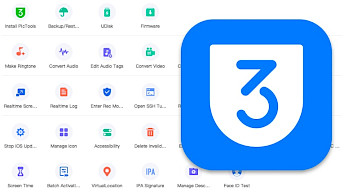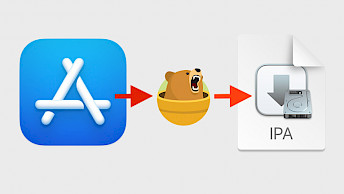Cinebench R15: The Legendary Benchmark Tool - Download, Usage, and Legacy
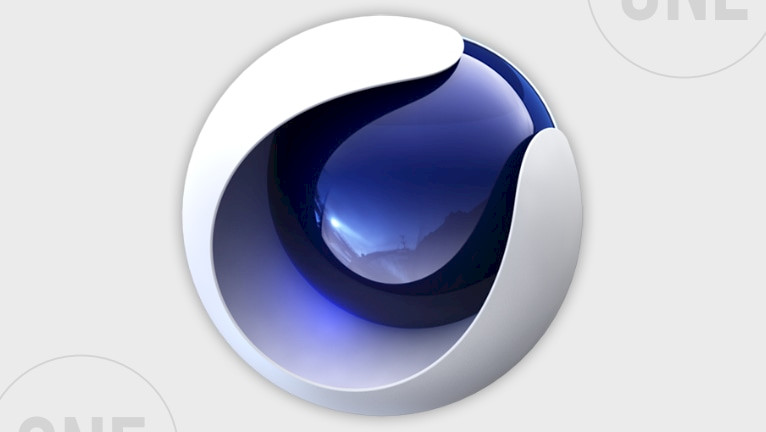
Despite newer versions like Cinebench R20, R23, and now R2024, Cinebench R15 remains a remarkably persistent fixture in the hardware enthusiast, overclocker, and professional benchmarking toolkit. Here you can download Cinebench R15 for Windows and macOS from our fast archive mirror.
But what drives this legacy? R15 occupies a unique sweet spot: it's lightweight yet demanding enough to stress modern systems, provides quick results, and crucially, offers a direct test of both CPU and GPU performance – a feature absent in its immediate successors (R20, R23) which focused solely on CPU testing.
For anyone evaluating system stability after overclocking, comparing hardware performance, or needing a quick sanity check, R15 delivers valuable insights in seconds. This guide dives deep into downloading, using, and understanding this iconic benchmark used over the years on Desktop.
Cinebench R15 Download: Safe Links in 2025
Download Cinebench R15 ZIP to access both versions for 64-bit Windows (Vista, 7, 8, 10) or macOS 10.10 (Yosemite) and later. It supports all OpenGL 2.0 compatible graphics card (for the GPU test). Cinebench R15 is completely free. Avoid any site requesting payment. Get the latest version in 2025 for a fast mirror.
What is Cinebench R15?
Developed by MAXON Computer GmbH, the creators of Cinema 4D, Cinebench R15 is a free, cross-platform benchmarking tool released in 2013. It leverages the same core 3D rendering engine used in Cinema 4D R15 to push your system's hardware to its limits, providing quantifiable scores for comparison.
Unlike general synthetic benchmarks, Cinebench focuses on a real-world workload: rendering complex, photorealistic 3D scenes. This makes its results particularly relevant for users involved in 3D content creation, animation, visual effects (VFX), and motion graphics, though its utility extends to all users interested in raw processing power. Cinebench R15 is still used in 2025 to benchark older computers.
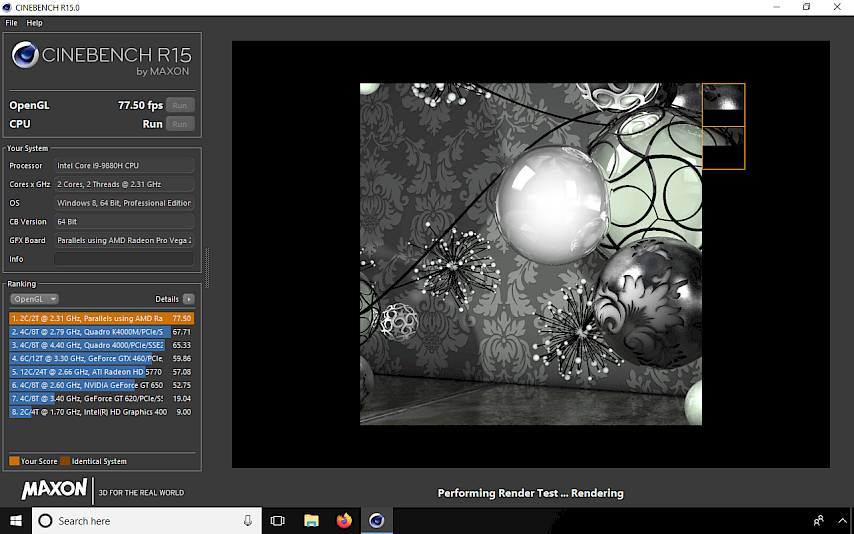
Cinebench R15 is a powerful benchmarking tool designed to evaluate a computer’s CPU and GPU performance through realistic rendering tasks. Its main features include a CPU rendering test that pushes all cores to render a complex 3D scene with around 280,000 polygons, advanced reflections, and dynamic shadows, delivering results in points (cb) to measure multi-threaded performance.
It also offers a single-core test, accessible via the advanced benchmark option, to assess performance for tasks that rely on one core. Additionally, the OpenGL GPU benchmark renders a dynamic “Car Chase” scene with nearly 1 million polygons, high-resolution textures, and complex effects, measuring graphics performance in frames per second (fps).
Cross-platform for Windows and macOS, R15 supports up to 256 processor threads and includes command-line automation for streamlined testing, making it a versatile choice for users evaluating system capabilities.
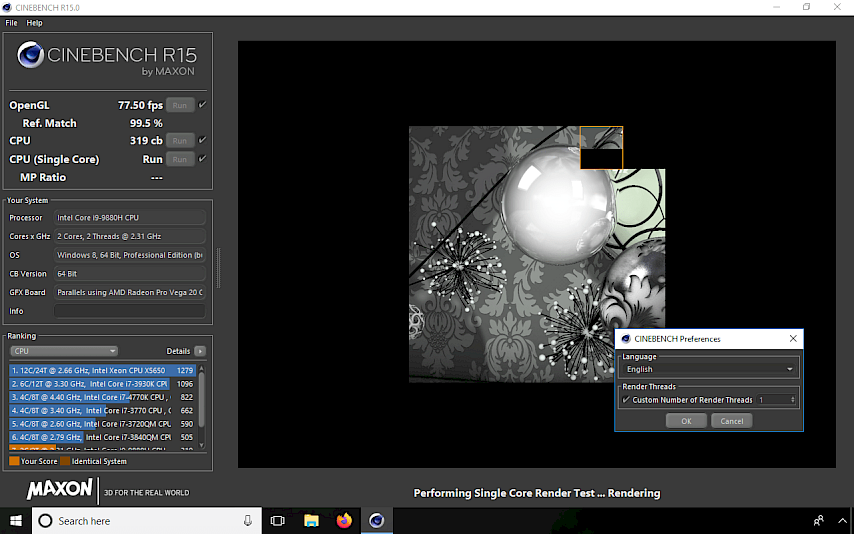
Why is Cinebench R15 Still Used in 2025? (The Legacy Factor)
- GPU Benchmarking: This is the primary reason for its longevity among enthusiasts. R23 and R20 removed the OpenGL GPU test entirely, leaving a gap for a quick, standardized GPU stress test within the Cinebench ecosystem. R2024 reintroduced GPU testing but using Redshift (a different renderer) and with a different scoring system.
- Speed & Convenience: R15 tests run very quickly (often under 2 minutes, sometimes seconds), especially compared to the longer minimum run times enforced by R20/R23. This makes it ideal for quick checks during system tuning, overclocking stability testing, or rapid hardware comparisons.
- Established Baseline: Over a decade of use has created a massive, informal database of results in the community. Enthusiasts and professionals often have historical R15 scores for their older hardware, making comparisons across generations easier within this specific benchmark context.
- Revealing Thermal/Power Limits: Its relatively short CPU test is excellent for revealing how well a system (especially laptops or small-form-factor PCs) can handle short bursts of maximum multi-core load before thermal throttling or power limits kick in.
- Accessibility & Low Barrier: Its small size, free cost, and simple interface make it incredibly accessible for all user levels.
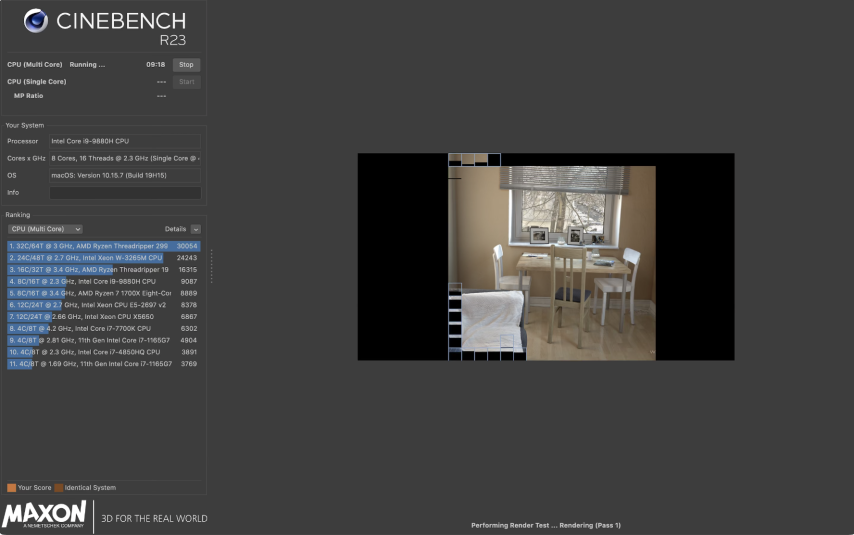
Cinebench 15 vs. Newer Versions: A Quick Guide
| Features | Cinebench 15 | Cinebench R20/R23 | Cinebench R24 |
| Release | 2013 | 2018 (R20), 2020 (R23) | 2023 |
| CPU Test Scene | Cinema 4D R15 Engine | Cinema 4D R20/R23 Engine | Redshift Renderer |
| GPU Test | OpenGL | X | Redshift (CPU & GPU) |
| Key CPU Scores | Points | Points | Points |
| Min. Runtime | Very Fast | (10 mins default R23) | Long |
| Modern ISAs | (SSE mainly) | (AVX) | (AVX, AVX-512) |
| Apple Silicon | (Requires Rosetta) | Native (R23+) | Native |
| Core/Thread Support | 256 Threads | High | Very High |
| Primary Use Case | Quick CPU/GPU Check, Legacy | Sustained CPU Load Test | Modern CPU/GPU |
Conclusion
Cinebench R15 is no longer the cutting-edge benchmark it once was. Newer versions, like Cinebench 2024, which utilize the powerful Redshift renderer, offer a more relevant test for today's complex CPU and GPU workloads. Its short test duration makes it less reliable for the highest-end systems.
However, its unique combination of blazing speed, straightforward CPU and GPU testing, and deep-rooted legacy within the hardware community ensures Cinebench R15 remains a relevant tool in 2025.
For quick system checks, overclocking validation, GPU stress testing, or comparing against older hardware within its own ecosystem, download Cinebench R15 and install it on your computer. It serves a specific, enduring niche that newer benchmarks haven't fully replaced. Grab it from a trusted source, run the tests, and see how your hardware stacks up against a piece of benchmarking history.
FAQ
Reputable sources including ONE Jailbreak are the safe source to download Cinebench R15 for macOS and Windows. The Mac App Store only offers newer versions (R23+) which lack the GPU test 4. Cinebench R15 was distributed as ZIP file containing both Windows and macOS release.
GPU Testing: R15 includes the OpenGL GPU benchmark, which was removed in R20 and R23. Speed: R15 tests run very quickly (seconds to minutes), making it ideal for quick checks or overclocking tweaks. Legacy Comparisons: A large historical database for comparisons.
No! Due to significant changes in the underlying rendering engine, compilers, and test scenes, scores between different Cinebench versions (R15, R20, R23, R2024) are absolutely not comparable. You can only meaningfully compare scores generated using the same Cinebench version.
Limited Usefulness. While R15 supports up to 256 threads, its CPU test runs too quickly (often 5-10 seconds) on systems with 32+ cores. This brevity prevents the system from stabilizing at peak turbo speeds, leading to inconsistent and unreliable results (variance >20%).




